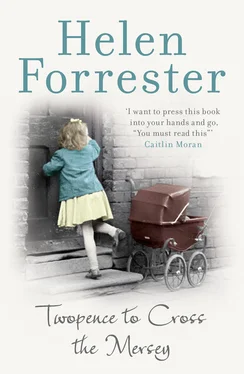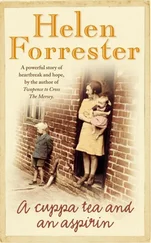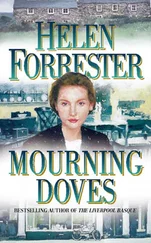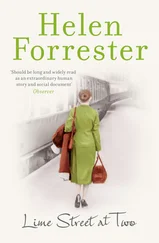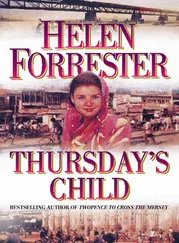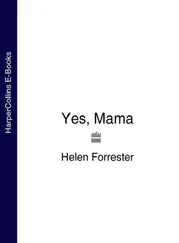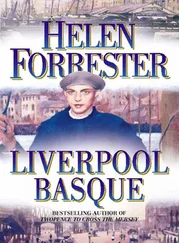HELEN FORRESTER
Twopence to Cross the Mersey

Published by HarperCollins Publishers Ltd
The News Building
1 London Bridge Street
London SE1 9GF
www.harpercollins.co.uk
First published in Great Britain by HarperCollins Publishers 2012
This edition published by Harper 2016
Copyright © the estate of Jamunadevi Bhatia 1985
Cover layout design © HarperCollins Publishers Ltd 2016
Cover photograph © Raymond Kleboe / Getty Images
HarperCollins has made every effort to find copyright holders and obtain permission for the use of copyright material in this book. If any material has been used without the owner’s permission please contact HarperCollins and we will give appropriate in future reprints or editions of this book.
Helen Forrester asserts the moral right to be identified as the author of this work.
A catalogue copy of this book is available from the British Library.
This novel is entirely a work of fiction. The names, characters and incidents portrayed in it are the work of the author’s imagination. Any resemblance to actual persons, living or dead, events or localities is entirely coincidental.
All rights reserved under International and Pan-American Copyright Conventions. By payment of the required fees, you have been granted the non-exclusive, non-transferable right to access and read the text of this e-book on screen. No part of this text may be reproduced, transmitted, down-loaded, decompiled, reverse engineered, or stored in or introduced into any information storage and retrieval system, in any form or by any means, whether electronic or mechanical, now known or hereinafter invented, without the express written permission of HarperCollins.
Source ISBN: 9780008180966
Ebook Edition © Dec 2016 ISBN: 9780007369324
Version: 2016-11-08
To the Liverpool City Police
Table of Contents
Cover
Title Page
Copyright
Dedication
Chapter One
Chapter Two
Chapter Three
Chapter Four
Chapter Five
Chapter Six
Chapter Seven
Chapter Eight
Chapter Nine
Chapter Ten
Chapter Eleven
Chapter Twelve
Chapter Thirteen
Chapter Fourteen
Chapter Fifteen
Chapter Sixteen
Chapter Seventeen
Chapter Eighteen
Chapter Nineteen
Chapter Twenty
Chapter Twenty-One
Chapter Twenty-Two
Chapter Twenty-Three
Chapter Twenty-Four
Chapter Twenty-Five
Chapter Twenty-Six
Chapter Twenty-Seven
Keep Reading …
Read the First Chapter of Liverpool Miss
About the Author
By Helen Forrester
About the Publisher
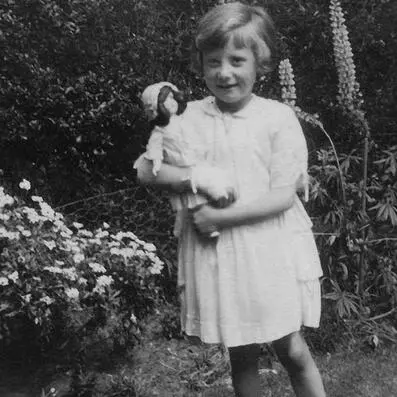
Helen aged 6, 1925
Liverpool is a city through which visitors pass on their way to other places. It is to them a dull world of shipping and commerce which sprawls untidily along the north bank of the River Mersey. Many of them will not know that it has a sister port, Birkenhead, on the opposite bank, which is linked to it by ferry-boats, a railway tunnel and a road tunnel. Beyond Birkenhead lie the small seaside towns of the Wirral peninsula and behind them is pleasant countryside. My widowed grandmother lived in the Wirral, and here, while visiting her, I spent the happiest days of my childhood, on sandy beaches or in wind-swept gardens. I remember with love the rain-soaked hills looking out on to stormy seas and the turbulent estuary of the Mersey.
It used to cost twopence to cross the river on the ferry-boat from Liverpool to Birkenhead. Twopence is not a very large sum, but if one has no money, the river is a real barrier, and, during the Depression years, was an impassable one to many of the poverty-stricken people of Liverpool.
Not so many years ago, I took my little Canadian-born son to see Liverpool and the places of my childhood.
‘Did you live here when you were small, Ma?’ he asked incredulously, his strong North American accent sounding strange amid the thick, nasal speech around him.
‘Yes, I was in Liverpool for part of my life.’
‘My, it’s dirty! Do you mind it being dirty?’
I smiled, seeing it all through his stranger’s eyes, eyes accustomed to new buildings, miles of neon signs, miles of prairie golden with wheat or diamond-white with snow.
I laughed down at him a little ruefully.
‘Yes, at first I did mind. Not now, though. I soon learned that people and cities which do the hard, unpleasant work of the world can’t help getting dirty. Liverpool’s a wonderful place when you get to know it.’
He looked at me derisively and said, with all the cold logic of a five-year-old, ‘They should use more soap and – wash the streets.’
My smile faded, as cold shadows of winters past crept over me. That was how I had felt, when first I had really looked at the city and not passed through it as a traveller. God, how I had minded the dirt! How terrified I had been! How menacingly grotesque the people had looked; children of the industrial revolution, nurtured for generations on poor food in smoke-laden air, grim and twisted, foul-mouthed and coarse, shaped in this strange gloomy world to serve the trade to the Americas. And I, a middle-class girl of the gentler south-west of England who had been shielded from the rougher side of life by a private school system and obedient servants, had nearly gone mad with panic when, with little warning, I had been thrown amongst them. Gone was the protection of money and privilege; I had to make what I could of this grimy city and its bitterly humorous inhabitants and share with them their suffering during the Depression years.
I clutched my son’s confiding little hand in mine, as, for a second, I felt again the fear which had enveloped me that January day in 1931, when, at the age of twelve, I arrived in Liverpool, not to pass through it as I had done before, but to live in it.
It seemed to me that it was not my son’s hand which I held so tightly but the hand of my youngest sister, Avril, and that I could hear her snivelling, as we looked out from the entrance of Lime Street Station and saw, through icy, driving rain, a city which seemed to be slowly dying, unloved and unsung, in the Depression of the nineteen-thirties.
‘Shut up, Avril,’ I said sternly, between chattering teeth. ‘Everything is going to be all right.’
‘I’m cold and I’m hungry.’ The wail threatened to become one of three-year-old Avril’s howling tantrums, as she started to kick off her patent-leather shoes and tear at her blue satin bonnet-strings.
I loosened the wet elastic of my black school hat from under my chin. The hat, as usual, had been crammed down on top of a large ribbon bow, which held my front hair ruthlessly scraped back from a too high forehead. My spectacles were sprayed with rain and I could not see very well as I peered short-sightedly down Lime Street.
I lifted Avril up and hugged her to my damp school uniform.
‘Behave yourself,’ I ordered sharply. ‘We are all hungry. You must be brave until Daddy comes back to collect us.’
Fortunately, I did not know that my father, at that moment walking the streets of Liverpool in search of shelter for his sick wife and seven children, had no real idea of what to do to mitigate the catastrophe which had struck him. I presumed that adults always knew what they were doing and the likely outcome of their actions. I did not know that my mother, lying on a stretcher in the ladies’ waiting-room, her six-week-old son beside her, was sweating with pain after a major abdominal operation and was bordering on a nervous breakdown. I could not understand why we could not go to stay with my grandmother, who lived only a few miles away in the Wirral peninsula. No one had told me she had quarrelled violently with her son and his wife, whom she condemned jointly as worthless spendthrifts, and would have no more to do with us.
Читать дальше
